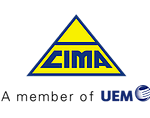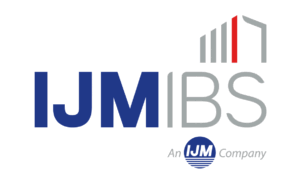This site
is mobile
responsive
Building Technology
Malaysia’s building technology industry is a dynamic and integral part of the economy, renowned for its high-quality raw materials and components that are widely used globally. The industry encompasses key sectors such as non-metallic minerals and Industrialised Building Systems (IBS), which are critical materials and resources to global supply chains for manufacturing sectors.
Malaysia’s Non-Metallic Mineral industry centres on the manufacturing of glass, ceramics and clay-based products, cement, concrete and other products such as silica sand, kaolin, lime products, marble, quartz, and granite.
Advancements in materials engineering and nanotechnology have opened up new possibilities for kaolin and silica sand which are suitable for high-tech applications such as electronics, aerospace and energy storage.
At present, a considerable number of industry players are confronted with the challenges of upholding ESG compliance standards. For instance, the production of cement, limestone powder, activated clay and ceramic substrate which give rise to the dispersion of dust or accumulation of waste materials. As a result, substantial opportunities emerge within the space of waste disposal and advanced management strategies.
MIDA is actively promoting investments in this sector due to its wide-range of applications across various advanced industries. In order to improve productivity and stay competitive in the global market, Malaysia’s mineral industry is focusing on the utilisation of Industry 4.0 technologies and actively developing skilled workforce and specialized expertise.
For more statistics, please click here.
Industrialised Building System (IBS) offers better quality, higher speed, and more cost-effective construction compared to the conventional approach of construction. Local IBS players are encouraged to adopt Building Information Modeling (BIM) which is one of the most advanced and important technologies to assist in improving productivity and sustainability.
IBS investors are moving towards sustainable construction methods by adopting ESG principles, including Digital IBS, robotic automation, and smart technologies. These initiatives can save time, materials and labour, leading to a more sustainable overall approach.
IBS adoption is aided by government incentives to further promote technology integration and productivity improvement. Among incentives available are Automation Capital Allowance, Reinvestment Allowance and Tax Incentives for IBS manufacturing.

YTL Cement Berhad

Kim Hin Industry Berhad

SCHAEFER KALK
(Malaysia) Sdn Bhd
![]()
Nippon Electric Glass (M) Sdn Bhd

Xinyi Glass Holdings Limited

Kibing Group (M) Sdn Bhd

Gamuda Industrial Building
System Sdn Bhd

Altech Chemicals Sdn Bhd

White Horse Ceramic
Industries Sdn Bhd

Malaysia Sheet
Glass Sdn Bhd (NSG Group)

Cement Industries
of Malaysia Berhad

IJM IBS Sdn Bhd
In 1992, CRT glass manufacturing was successfully established in Malaysia on the back of a highly skilled workforce, stable supply of utilities, well maintained infrastructure, generous investment incentives and strong support from Government bodies.